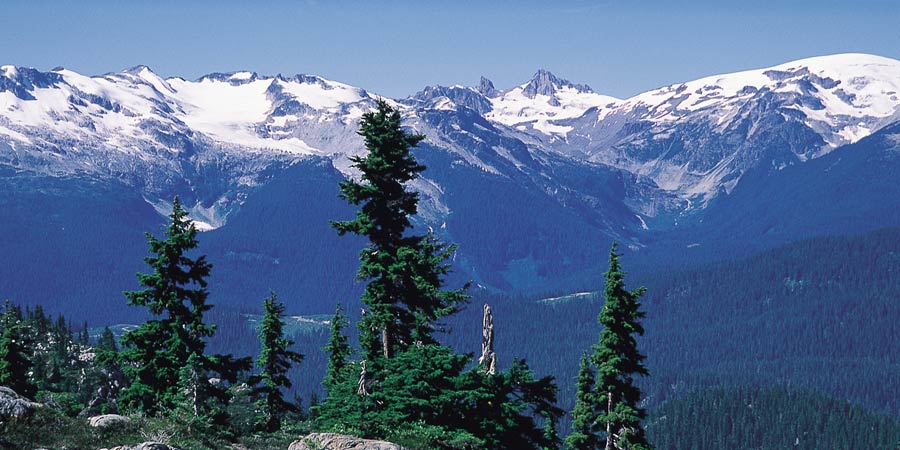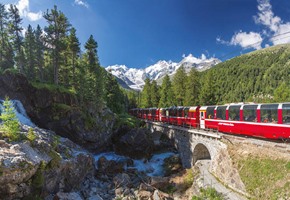Canada is an untamed treasure trove of beautiful, wild landscapes and remarkable native wildlife. Renowned worldwide for this wealth of natural charms, the nation is home to an abundance of fascinating creatures; perhaps most famously the majestic bears, found wandering the dense forests, and the awe-inspiring whales that can often be spotted in the waters just off Canada's coastline.
Whether you're an avid wildlife photographer, eager to snap a photograph of a mighty creature in the wild, or simply an animal lover hoping to catch a glimpse of some impressive wildlife, Canada is an ideal destination for those interested in nature. Read on to discover more about Canada's outstanding bear population, as well as one of the colossal beasts which populates Canada's diverse marine ecosystem - the mighty blue whale.
Bears
Bears are one of the creatures most synonymous with Canadian wildlife and can be found in varying forms across the entire nation. The three types of bear native to Canada are the black bear, the polar bear and the brown (or grizzly) bear, with the nation boasting more of each of these types of bear than any other location in the world. Of the three, black bears are the most populous, and the species you are most likely to catch a glimpse of when visiting Canada.
Black bears typically avoid human contact, occupying sparsely populated forested areas, and leaving to hunt. As omnivores, the diet of the black bear varies depending on the season, location and availability of food. Occasionally, opportunistic black bears will overcome their aversion to humans and venture into residential communities to scavenge food - not ideal, as human safety largely depends on bears remaining fearful of people. Black bears are most commonly seen in the forested regions of each province and areas around the east and west coastlines, with Cape Breton Highlands National Park in Nova Scotia providing home to the black bear, as well as a diverse mixture of other wildlife. Lucky visitors to the Cabot Trail, a spectacular scenic route that cuts through the beauty of Cape Breton Island, may catch a glimpse of a black bear exploring the wild landscapes that surround the roads.
Grizzly bears are much more solitary than the smaller black bear. Considered an endangered species, spotting one of these elusive creatures in the wild is a truly once in a lifetime experience. An Alaska cruise can be a great opportunity to spot a grizzly bear, as they often gather together in large numbers to hunt for salmon in the estuary streams; a dramatic sight to behold. Over half of Canada's population of grizzlies live in British Columbia, but they can also be spotted in the Canadian Rocky Mountains. Lake Louise in Banff National Park, in particular, is known for its grizzly viewings, with the Lake Louise Gondola offering an awe-inspiring vantage point, and the perfect opportunity to indulge in some grizzly spotting. As passengers ascend the grassy slopes that are used for skiing in the winter, it is not unheard of for them to spot majestic grizzly bears grazing on the ground below.
Whales
At over 200,000km and covering the north, east and west of the country, Canada's beautiful coastline is the longest in the world. It is no surprise, then, that the nation is known for its incredible marine wildlife - and there is perhaps no creature more incredible than the mighty whale. Over thirty different species of whales call Canada their home and, with more than 20 residing in the Atlantic Ocean on the east coast, there is no better spot from which to embark upon a whale watching tour.
Prime whale watching locations on the east coast are in Nova Scotia, as well as New Brunswick and Quebec, where whales are commonly seen navigating the vast St Lawrence River. Regarded as one of the most beautiful whale watching spots in the world, a variety of whales can be found here, including the largest known mammal on earth, the blue whale.
Dominating the oceans at a magnificent length of up to 100 feet and a weight of up to 200 tonnes, it is difficult to fully appreciate the enormity of the colossal blue whale. The largest and loudest animals on earth, blue whales call at a volume which could drown out a jet engine, and their hearts alone weigh as much as a car. While the commercialised whaling boom of the early 1900's drove blue whales to near extinction, they are now classified as endangered and conservation efforts mean that their numbers are slowly recovering - although there are still only an estimated 10,000 - 25,000 worldwide today.
While the bear and the whale are without doubt some of the most spectacular creatures to be found across Canada, the gargantuan country is home to an almost interminable list of incredible wildlife, including bald eagles, moose and wolves. Those who chose to journey to this remarkable nation are promised a truly unforgettable experience, in one of the finest wildlife destinations the world has to offer.





